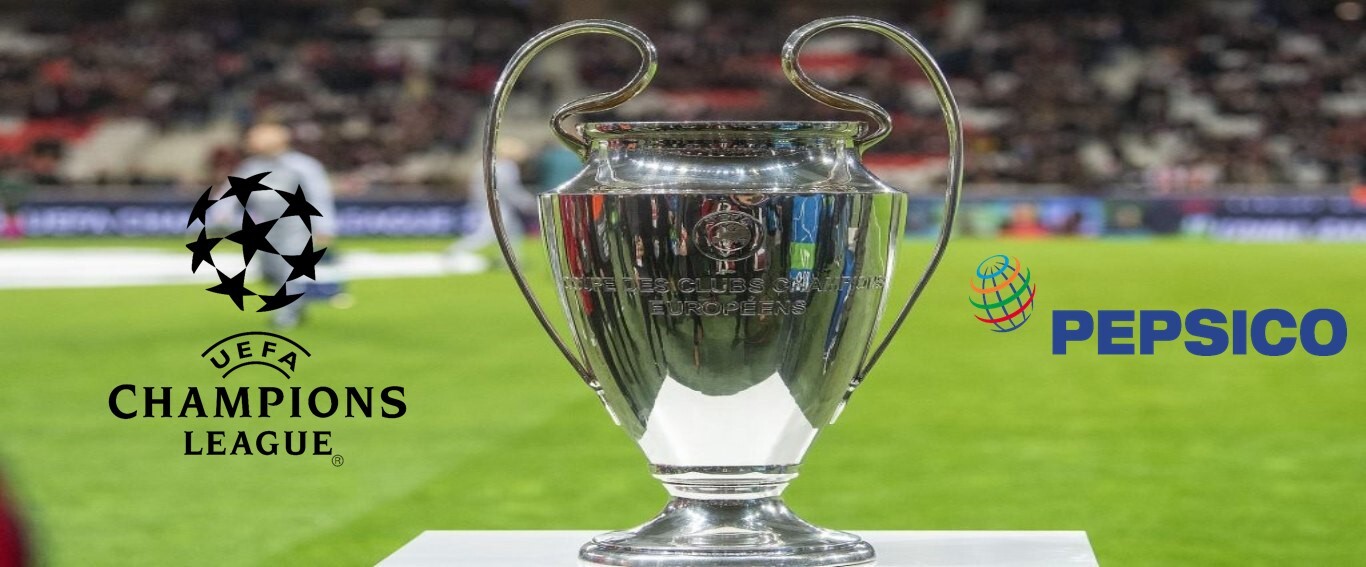UEFA Champions League has reached an agreement to extend the sponsorship deal with PepsiCo. Europe’s governing body for football announced on December 1 that the new deal will see their association with the food and beverage brand extend until the end of the 2023/24 campaign. The two parties have been working together since 2015.
As part of this agreement between two organisations, Pepsico will also sponsor the UEFA SuperCup until 2024. The Supercup event is played between the Champions League winner and Europa League winner at the start of the new season. The solitary game is generally held at a neutral venue.
Earlier this year, Pepsico had negotiated a long-term deal with UEFA to sponsor the Women’s Football. Pepsico will now get a lot of coverage at the two most premier club competitions of football. The Beverage brand is likely to be ever-present on LED screens during games, while they may organize various contests for fans as they did in previous seasons.
The financial package is yet to be released in the public domain. It is a big boost for the Champions League that one of their long-term partners are sticking with them. The competition could be under threat in the near future if the rumours about a breakaway Super League involving Europe’s biggest clubs turn out to be true.
In a media release on December 1 (via PRNewswire), PepsiCo’s global chief commercial officer Ram Krishnan said, “Since becoming a sponsor in 2015, the PepsiCo and UEFA partnership has become stronger and more exciting each year. Today, it is the largest global platform we activate against, with more than 100 of our markets eagerly participating each season with best-in-class commercial programs, from iconic pack solutions and point of sale activations to engaging marketing campaigns with some of football’s best athletes supporting our brands.”
The coronavirus pandemic had a big impact on the competition last season. UEFA had to scrap the usual knockout rounds system. They went ahead with single-leg fixtures in knockout rounds in Lisbon. Bayern Munich eventually lifted the trophy in August by beating Paris Saint-Germain in the final. The new Champions League campaign is following the previous format as clubs keep players in strict bio-secure bubbles.

